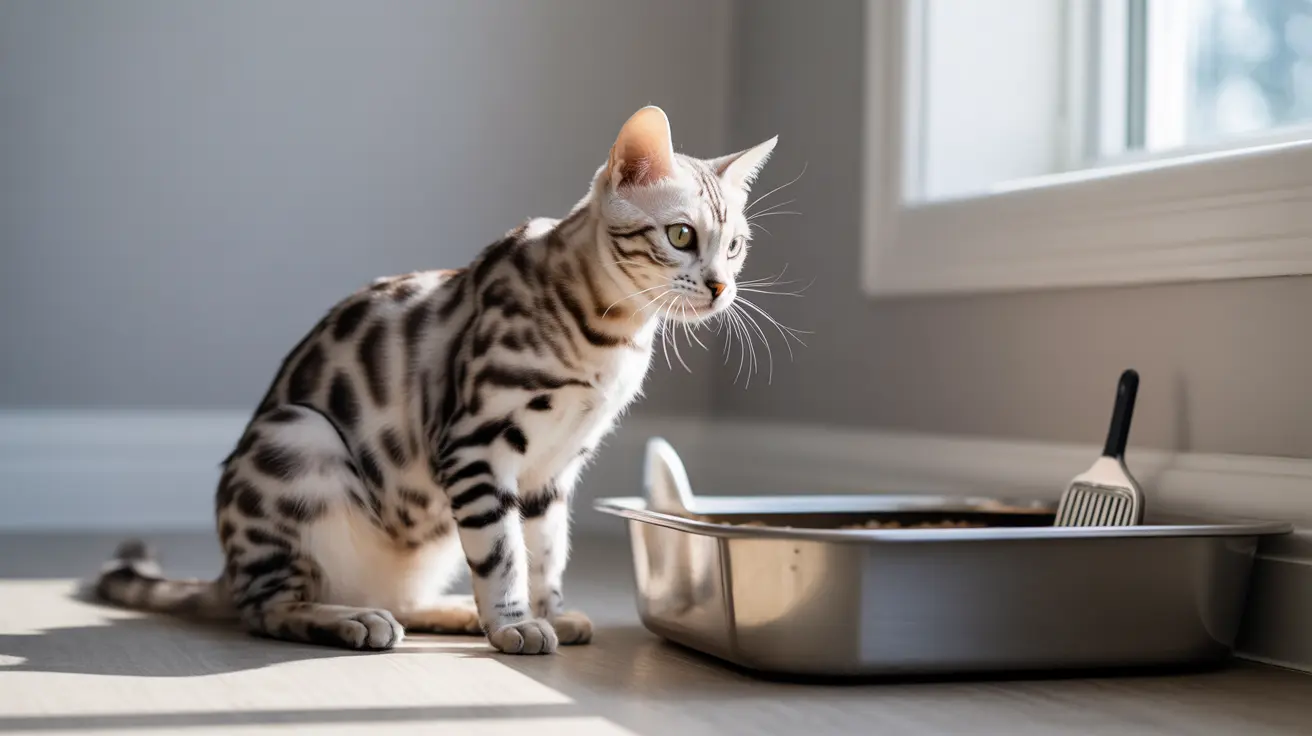Understanding Your Cat's Litter Box Behavior
When your cat keeps going to the litter box but nothing happens, it can be both concerning and frustrating for pet owners. This frequent but unproductive litter box behavior isn't just a minor inconvenience – it could signal various underlying issues that require attention.
As a responsible cat owner, understanding why this behavior occurs and knowing when to seek veterinary care is crucial for your pet's health and well-being. Let's explore the various causes and solutions for this common feline problem.
Medical Causes for Frequent Litter Box Visits
Urinary Tract Issues
One of the most common medical reasons for frequent, unproductive litter box visits is Feline Lower Urinary Tract Disease (FLUTD). This condition can manifest as urinary tract infections, bladder inflammation, or the presence of crystals and stones. Male cats are particularly susceptible to urethral obstruction, which can be life-threatening if left untreated.
Other Health Conditions
Several other medical conditions can cause increased litter box visits with minimal results:
- Kidney disease, especially common in older cats
- Diabetes mellitus, which affects urination patterns
- Hyperthyroidism, particularly in senior cats
- Feline Idiopathic Cystitis (FIC), often triggered by stress
Environmental and Behavioral Factors
Litter Box Setup and Maintenance
Sometimes, the issue isn't medical but environmental. Your cat may be uncomfortable with:
- A dirty litter box that needs more frequent cleaning
- The type or texture of cat litter being used
- The location or size of the litter box
- Limited access due to other pets
Stress-Related Factors
Cats are sensitive to changes in their environment. Common stressors include:
- Moving to a new home
- Introduction of new pets or family members
- Changes in daily routines
- Territorial disputes in multi-cat households
When to Seek Veterinary Care
Some situations require immediate veterinary attention, including:
- Straining to urinate with no results
- Crying out while using the litter box
- Blood in the urine
- Excessive licking of the genital area
- Loss of appetite or lethargy
Prevention and Solutions
Maintaining Proper Litter Box Hygiene
Establish a regular cleaning routine:
- Scoop the litter box at least once daily
- Completely change litter every 1-2 weeks
- Clean the box thoroughly with mild soap and water
- Consider using unscented, clumping litter that most cats prefer
Creating an Optimal Environment
Ensure your cat feels comfortable and secure:
- Provide multiple litter boxes (one more than the number of cats)
- Place boxes in quiet, accessible locations
- Use appropriate-sized boxes for your cat
- Consider using stress-reducing pheromone products
Frequently Asked Questions
Why does my cat keep going to the litter box but nothing comes out?
This behavior can indicate various issues, from urinary tract infections to stress. If the behavior persists for more than 24 hours, consult your veterinarian, especially if your cat shows signs of discomfort.
Could my cat's frequent litter box visits with little urine be a sign of a urinary blockage?
Yes, particularly in male cats, frequent unproductive visits could indicate a urinary blockage, which is a medical emergency requiring immediate veterinary care.
What medical conditions cause a cat to repeatedly try to urinate without success?
Common conditions include urinary tract infections, bladder stones, FLUTD, kidney disease, and diabetes. Each requires proper veterinary diagnosis and treatment.
How can I tell if my cat's litter box behavior is due to stress or a medical problem?
Look for additional symptoms like crying, lethargy, or changes in appetite. Medical issues often come with physical symptoms, while stress-related issues may coincide with environmental changes.
When should I take my cat to the vet for frequent, unproductive trips to the litter box?
Seek immediate veterinary care if your cat shows signs of straining, pain, or inability to urinate, especially if male. Don't wait more than 24 hours if the behavior persists.






